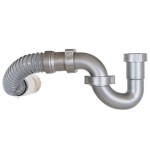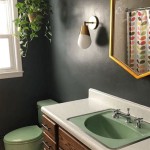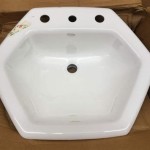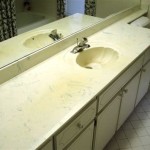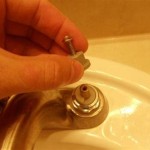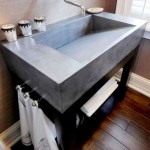Can You Drink Hotel Bathroom Water?
The ubiquitous presence of water in hotel bathrooms raises a question that plagues many travelers: Is it safe to drink? The answer, unfortunately, isn’t a simple yes or no. The safety of drinking hotel bathroom water depends on a multitude of factors, including the hotel's location, maintenance, and hygiene practices. While some hotels might have perfectly potable water in their bathrooms, others might pose potential health risks.
The primary concern with drinking hotel bathroom water is the potential presence of contaminants. These contaminants can range from harmless bacteria and microbes to harmful pathogens that can cause illness. While most hotels have water filtration systems in place, these systems may not be able to remove all contaminants, particularly if they are not regularly maintained or if the hotel's plumbing system is old or in poor condition.
Factors Influencing the Safety of Hotel Bathroom Water
The safety of drinking hotel bathroom water is influenced by a variety of factors, making it impossible to provide a universal answer. Here are some key factors to consider:
1. Hotel Location and Water Quality
The quality of the water source in a hotel's location is a primary factor in the safety of its water. Hotels in areas with poor water quality or a history of water contamination are more likely to have contaminated water in their bathrooms, even if they have filtration systems in place. For example, a hotel in a region with high levels of lead in the water supply might have elevated levels of lead in its bathroom water, even if it has a water filter.
2. Hotel's Maintenance and Hygiene Practices
The maintenance and hygiene practices of the hotel can significantly impact the safety of its water. Regular cleaning and maintenance of plumbing fixtures and water filtration systems are crucial in preventing the growth of bacteria and other contaminants. Hotels with poor hygiene practices or inadequate maintenance programs have a higher risk of contaminated water in their bathrooms.
3. Age and Condition of the Hotel's Plumbing System
The age and condition of a hotel's plumbing system can also play a role in water safety. Older plumbing systems are more likely to have corrosion and leaks, which can allow contaminants to enter the water supply. In addition, lead pipes are still found in some older hotels, which can leach lead into the water. While lead pipes have been banned in many countries, they may still exist in older buildings.
3. Travel Advisories and Local Water Quality Reports
Before traveling, it's always a good idea to research travel advisories and local water quality reports. These reports can provide valuable information about the overall water quality in the area and any potential health risks associated with drinking tap water. Many countries issue advisories about the safety of drinking water, especially in areas with a history of water contamination.
Risks Associated with Drinking Hotel Bathroom Water
Drinking contaminated water can pose a number of health risks, ranging from mild gastrointestinal discomfort to serious infections. Some of the most common health risks associated with drinking contaminated water include:
• Gastrointestinal Illness: Symptoms include diarrhea, vomiting, abdominal cramps, and nausea. • Dehydration: Severe diarrhea and vomiting can lead to dehydration, which can be particularly dangerous for young children, elderly adults, and people with underlying health conditions. • Infections: Contaminated water can harbor bacteria, viruses, and parasites that can cause infections. Some common waterborne infections include giardia, cryptosporidium, and E. coli.
Best Practices for Staying Safe
While drinking hotel bathroom water might seem convenient, it's always best to err on the side of caution. Here are some best practices for staying safe while traveling:
• Drink bottled water: Bottled water is the safest option for drinking water while traveling. Look for bottles that are sealed and unopened. • Use a water filter: If you are concerned about the safety of the hotel's water, consider using a portable water filter. These filters can remove most contaminants from tap water, making it safe to drink. • Boil water: Boiling water for one minute can kill most harmful bacteria and viruses. If you are unsure about the safety of the water, boiling it is a good precaution. • Ask your hotel staff: If you are unsure about the safety of the hotel's water, ask the hotel staff. They can provide information about the water source and any potential risks. • Be aware of your surroundings: Pay attention to any signs or warnings about the water quality in the hotel or the surrounding area. If you see signs indicating that the water is not safe to drink, take precautions.
By following these tips, you can minimize the risks associated with drinking hotel bathroom water and enjoy a safe and healthy travel experience.

The Grim Reason You Should Never Drink Water From Your Hotel Bathroom Us Sun

Is Hotel Water Safe To Drink Quench

Can You Drink Hotel Bathroom Tap Water The Alcazar

Experts Reveal Why You Should Be Wary Of Hotel Tap Water On Your Post Covid Holiday Network Ten

Is Hotel Water Safe To Drink Quench

How To Get Unlimited Free Filtered Water And Towels When Staying At A Hotel The Sun

Is It Safe To Drink Tap Water From The Bathroom Professor

How To Drink Water Safely In Southeast Asia Helpful Tips

Travelers Sharing S Drinking Tap Water In Bali To Build Up Immunity Criticized The Sun

Is It Safe To Drink Hotel Bathroom Tap Water

